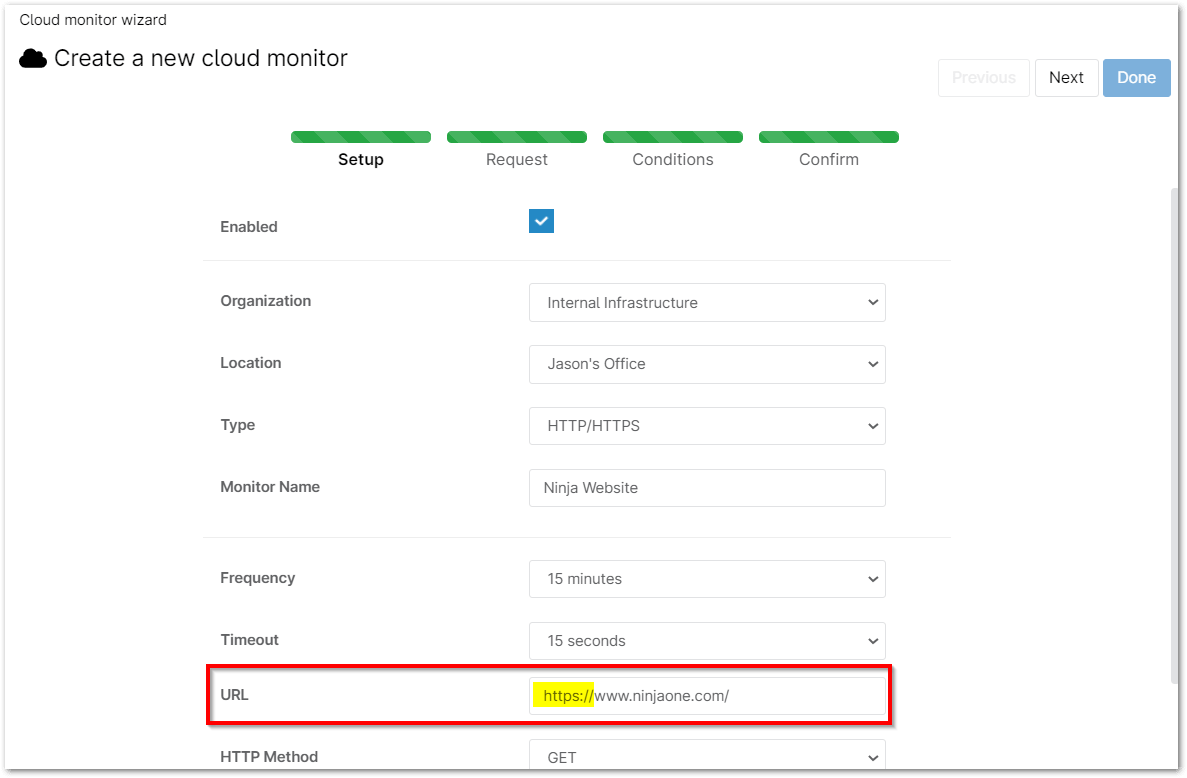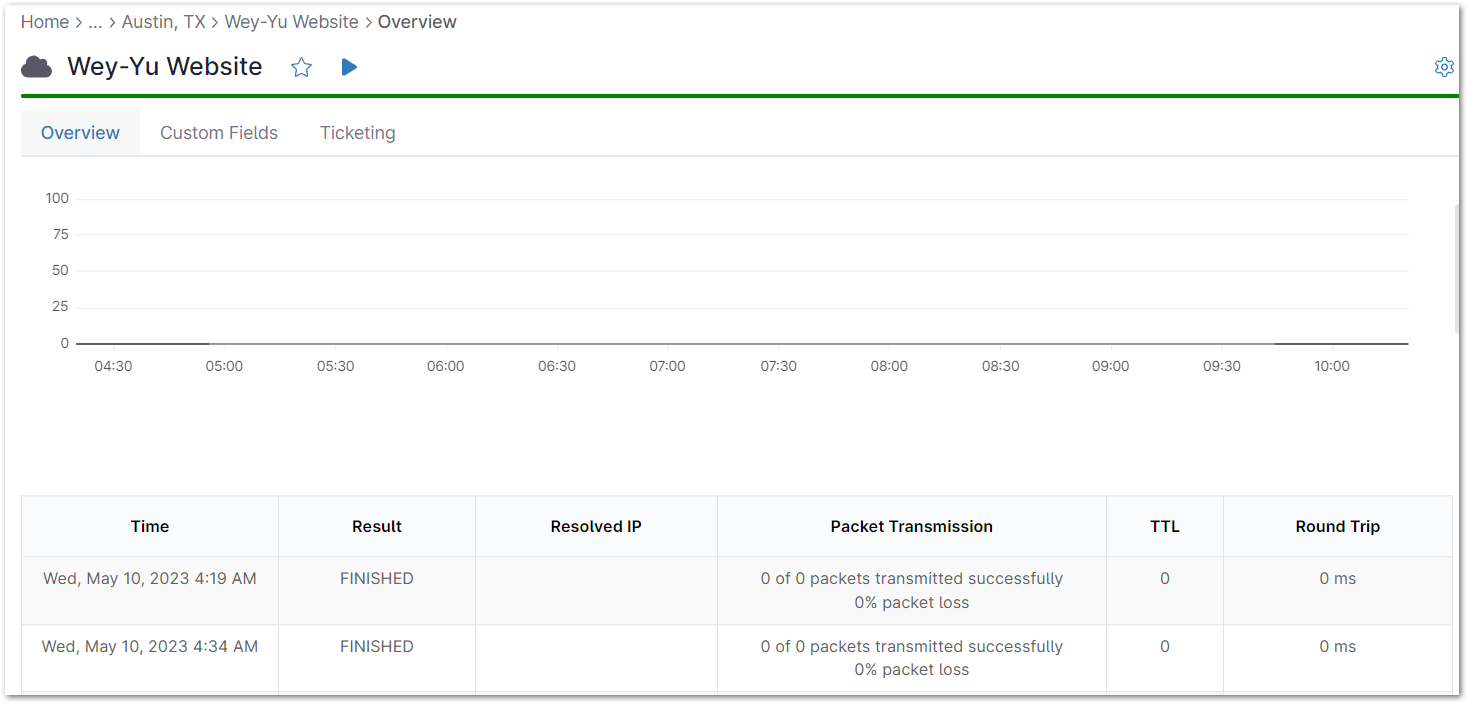The HTTP/HTTPS monitor checks a website for any potential issues ranging from HTTP request failure, high response time exceeding a certain threshold, or HTTP response message type. HTTP Monitors not only detect website downtime, but also identify soon to be expired SSL certificates.
It is also a feature that checks the availability and responsiveness of web servers or web applications. It simulates a user’s request to a specific website or web application and measures the response time and status code. With HTTP monitors, organizations can proactively identify and resolve website issues, improve user experience, and maintain business continuity.
Why is HTTP monitoring essential?
HTTP monitoring is essential for maintaining optimal website and application performance. By continuously assessing website health and response times, organizations can proactively identify and resolve issues before they impact end-users. This proactive approach ensures a seamless user experience, protects brand reputation, and maximizes uptime.
How do I enable HTTP Monitoring in NinjaOne?
Please note that to properly monitor a website, the SSL certificate must be valid. The date on which the SSL certification expires is listed under the monitor and provided as a link to view the SSL certificate.
During setup, select the frequency, timeout, host, HTTP method (supports various HTTP methods: GET/PUT/HEAD/POST), HTTP authentication, and response body (an option to save the webpage which saves a snapshot of the landing page).
You must set up the Monitor Name with an “http://” prefix. (See the screenshot below for reference)

There are four different types of conditions available for HTTP monitors:
- Failure allows you to monitor for when the HTTP request fails a specified number of times.
- Status Code allows you to monitor for when the HTTP request returns a particular code a specified number of times.
- Response Time allows you to monitor the time it takes (in milliseconds) for the HTTP query to return a response a specified number of times.
- Keyword allows you to monitor for whether the webpage contains/doesn’t contain a particular keyword.
- SSL certificate expires in allows you to monitor for situations in which the SSL certificate will expire within a designated number of days.
After setting up a HTTP cloud monitor, viewing it will show you a table of the data points that have been recorded — the table includes the Time, Result, Protocol Version, HTTP Status, Response Time, Response Headers, Response Body, SSL certificate expires in, and SSL Certificate. (See the screenshot below for reference)

HTTP Monitoring is a cutting-edge approach to keep an eye on the status of your web servers. Here are a few explanations as to why you should think about integrating HTTP monitoring for your web servers. Assists in easily replicating user activity. Utilize HTTP monitoring to routinely assess if your users have seamless and consistent access to fundamental services.
Notifies you of errors.
HTTP monitoring is crucial for preventing website downtime and ensuring optimal user experience. By setting up alerts for specific issues like slow load times or error messages, you can quickly identify and resolve problems before they impact your customers.
Aids in anticipating potential problems.
Like any other monitoring tool, HTTP monitoring is like a warning system that alerts you to potential website issues before they become serious. By monitoring important measurements and setting starting points, you can anticipate and avoid issues before they affect your users. This proactive strategy protects the reputation of your website and guarantees a smooth user experience.
Monitor the availability of your SSL certificate.
SSL certificates are essential for securing online transactions. They encrypt data exchanged between websites and users, preventing unauthorized access. However, these certificates have an expiration date. HTTP monitoring detects expiration dates and notify users when certificates are about to expire.
